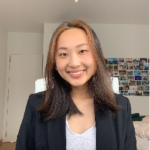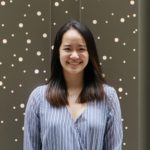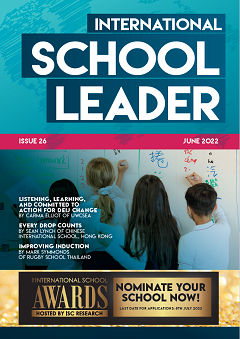Anson Wong speaks to Kotoha Kudo
Kotoha Kudo was one of the student speakers at the ISC Research Edruptors Conference. She is co-founder of student-led activist group Reset Revolution and participated in the Diversity, Equity, Inclusion, and Justice panel discussion. Here we ask her to dig a little deeper on her views about social justice in international schools.
Anson: What does social justice mean to you and how is it approached in your international school?
Kotoha: Social justice is the drive to seek equity within a community, whether that be an international school or a larger society. It requires understanding that there are differences between each individual and their identity, and aims to pursue this equity within the community. People who seek social justice try to ensure that social justice is respected.
Within an international school, a lot of educators would like to say that social justice is already being respected and that there is no discrimination. Because many international school communities are so prominent by their differences, many people don’t really question whether these differences are being respected and valued. But I don’t think there is much of an approach to how social justice works within the community of an international school. Social injustice is more often discussed as an external problem and therefore constructs an illusion that there is no issue present within the school community.
Anson: Did you have personal experiences of social injustice growing up in international schools?
Kotoha: I have been subject on many occasions to the ‘model minority’ myth. People say that these stereotypical personifications of Asian people should be seen as a good thing because they are mostly positive, but it completely disregards the individuality of every individual.
Also, as a different experience of social injustice, the only time I had an Asian teacher was in pre-K or my Japanese language teacher. Once, a teacher asked me had I ever been taught by somebody who looked like me. I hadn’t really considered that before, but it shows the lack of representation and diversity within my own educational experiences.
Anson: How has your experience as a third culture kid attending international schools shaped the way you view social injustice?
Kotoha: Before I started being actively involved, I thought I was very well educated and aware of social justice issues. I think I believed that, just because I have attended international schools, I am very inclusive about diversity, but I’ve now realised there’s so much that I didn’t know. For example, I realised through my own experience of living in Brazil that there is a large socioeconomic gap. This was very eye-opening and despite the school saying, “we’re inclusive”, we didn’t really have any communication with any other types of community; there was no bridge between the communities.
I think this can really distance international school students from what the world truly is. As international school students, we become illusioned to an idea that we are aware of the real world when, in reality, we are not; we’re just in an international school ‘bubble’.
The rise of the Black Lives Matter movement was a trigger point for me to take a more proactive stance towards social justice, instead of being a bystander.
Anson: You led a questionnaire in your school about racial discrimination. How did your peers and teachers respond to the results?
Kotoha: One of the questions was “Have you ever been subject to racial discrimination?”. 80% of the respondents said no. But when we filtered the results to only include people of colour, 50% of those participants said yes. There was a little bit of denial about this, more so from the students, especially the white students, and not many of them took the results seriously. But when the faculty started to say “hey, this is really important”, people began to take it seriously.
Most of the teachers who came to our presentation about the results were social science and English teachers. There weren’t many STEM or language teachers which was concerning because racism does not discriminate between fields of study.
There have been some teachers who have been very proactive and supportive of this questionnaire. They’ve been at the forefront of making sure that there is some change and accountability within the administrative level of the school that we, as students, can’t reach. I think because these teachers have been able to hold important conversations with people who are top leaders of the school, there has been more realisation that this is an issue.
Anson: Did your education make a difference to your awareness of social injustice?
Kotoha: When you’re in middle school or lower, I don’t think there is a wide enough range of resources, nor much of a voice from different people, especially people of colour. As you get older, the school begins to allow you to be more independent with your access to resources, but students need to be guided to access resources from a range of views and experiences.
In general, if you look at the head of your international school or administration, almost all are white. And the people who are in the meetings sitting around the table during important discussions, they are people who don’t experience what is really happening within the international school; they are all so very distanced from reality.
I definitely think my education has helped me to understand different perspectives and different cultures, but I do think there should be more resources, teachers and leaders representing the views of many different people, and especially relating to the host country.
Anson: Reset Revolution has become a student-led organisation that gives students a platform to talk about a wide range of social justice issues. What is your mission?
Kotoha: Our main objective is to make sure that young people have a place where they can talk about social justice issues in a comfortable and protected manner. There have been many people who were hesitant about talking about the racism or homophobia they experienced in their international school. It’s really important to 1) make sure people have a platform to talk about it; 2) make sure that other people understand they’re not alone; and 3) make sure that educators are proactive to ensure things like this don’t happen again.
Over the past few months, Reset Revolution has gone through a few changes, but overall, the underlying aim is to make sure people have a safe place or safe platform to talk about personal things that they don’t want other people to experience.
Anson: Have you experienced any sense of resistance towards or hesitation about Reset Revolution from your peers or teachers?
Kotoha: In the beginning, we faced a little backlash from students in our school who didn’t think of it as a serious issue. Our movement really stemmed from the idea of racism within international schools and so when we started to talk about issues that were ‘taboo’, a lot of people thought we were joking. At the beginning, there were some students who would join our presentation and then leave weird comments, or they would direct message us personally and say weird stuff about the things we were doing. We just kind of laughed about it and then shared it with the teachers and they laughed with us.
Our teachers have been very supportive. Some of them have asked our opinion on a curricular change. They have also allowed us to talk at their conventions, and have sent emails to their peers, and connected us with different people. I’m really appreciative. Through that, we have been able to reach out to more people.
So initially, there was a lot more backlash, but now we’ve earned some respect, so I think we’re doing okay.
Anson: How did you juggle establishing your organisation alongside going to school and completing the IB, and how are you ensuring it continues into the future?
Kotoha: Reset Revolution was founded during my senior year so that was the busiest time we could’ve chosen to create an organisation, especially as IB students! However, quarantine and Covid gave us the time to build it.
Sustainability in activism is crucial to induce impactful change in the community. Last year, the rise of the Black Lives Matter movement sparked a lot of emotion in the international school community, especially the formation of student activist groups. However, a common pattern we see, especially on social media, is that many groups experience burn-out quite soon. Having a legacy is great but making sure that the movement and mission is continued in the long term is crucial. So, when we founded the organisation, we made sure that it wasn’t going to exist just because of the three founders. We established a rotational system where we could pass the organisation down to the next generation to ensure international schools continue to be held accountable.
What motivates us is to keep making sure voices are continually heard so that international schools get to the point where they say, “We need to make change”.
Anson: At the Edruptors Conference, you talked about the importance of the student voice in guiding educational decisions. What advice would you give to the international school community about enabling open communication?
Kotoha: Teachers should support students by listening to them. They have to be the ones to make sure that all other faculty [members] are listening; they can’t just be bystanders. I’ve heard a lot of testimonies from BIPOC students where they’ve gone to a teacher describing their experiences of racial harassment and, in response, the teacher decided not to do anything. If you’re an educator, your job is to make sure that all your students have a comfortable, safe place to learn and that means listening to them. If you can’t be the beginning of change, why are you teaching?
Making sure that students who want to hold the international school accountable are included in conversations is really important. But students can only do so much. Educators have to be the ones to make sure the curriculum, structure, and peace-conflict management strategies change, and that uncomfortable topics are talked about. Don’t scoop them aside just because they’re uncomfortable – if you’re uncomfortable, that probably means they’re important topics.
It’s also crucial to make sure that students of colour are being heard because, generally, they aren’t. The minority should be ones who are being heard, despite being the minority.
Anson: In the conference discussion, you also talked about conflict and how schools utilise peace-conflict management. What method could schools adopt to facilitate this?
Kotoha: While I was interviewing Amahle Sangqu on the topic of systemic racism within international schools, she explained the progression of talking about race from first grade to her senior year and explained the flawed system of peace conflict management. Her point was that when you’re really young at an international school, you’re taught that everybody is the same. Then in elementary school and middle school, teachers start to point out the differences, but these examples tend to come from history, like the slave trade, and can be ambiguous to students. Teachers don’t usually talk openly about the differences in people today.
Young people are naturally comfortable pointing out that there are differences between people, whether that be race or sexuality or identity. But because we are taught that everybody is somehow the same, when you get older and see obvious differences, you don’t understand that those differences are okay and should be respected.
The fact that people don’t learn enough about discrimination considering the diverse nature of international schools is concerning. I’ve heard students as young as second grade who had experienced racism but at the time didn’t realise it was racism. Not knowing how to identify discrimination is a problem in itself, so schools need to make sure that these conversations start young and that all students know what it is and looks like.
Discrimination doesn’t have to be a hard topic to introduce. It can be something really simple like reading colour books that explain it in a manner that’s digestible for first graders. The reason we feel it’s uncomfortable is because we don’t talk about racism and other forms of discrimination enough. If you start introducing it to students at a young age, it’s not going to be an uncomfortable topic in their future.
International schools need to make sure that they’re extremely clear-cut in their messages about racism and personal differences. Treat them with the same seriousness as you would academic dishonesty or drugs, but also recognise that they’re not the same. With drugs and alcohol, you’re harming yourself, but if you harm someone else mentally and emotionally with your words or behaviour, that’s worse.
Anson: As you look back on your years as an international school student and the impact this has had on you, are there changes you would like to suggest to the global international school leadership community?
Kotoha: Making sure that there are more BIPOC teachers and more representation in different subjects is really important. I understand that I lived in a very white place, but at the end of the day, if the school can bring teachers from America and Canada, why can’t they bring in more BIPOC teachers?
Sharing experiences and ensuring there is more time for POC [people of colour] conversations is very important too. It would be nice to have a POC counsellor because that would make conversations and understanding a lot easier for POC students and staff.
There are reasons why some schools have very few POC teachers; either the school doesn’t employ that many POC teachers or those teachers don’t want to be there. Both reasons are very alarming, but for the latter, it says that something has to change within that school community. Make sure that POC teachers and administrators are being listened to and they feel comfortable to stay in your school. Use a survey to track why teachers leave you, and specifically, why POC teachers have left in the past.
Regardless of who you are, if you see acts of racism or discrimination within international schools, be the first person to condemn it, don’t be the bystander or deem it normal, that doesn’t make any sense. Educators have to teach students that discrimination is unacceptable – there are no reasonable two sides to that story.
 Kotoha Kudo is a recent graduate from the International School of Brussels. She has lived in the USA, Japan, Brazil and Belgium. She just received her International Baccalaureate Diploma and is now heading to Tulane University as a freshman. Connect directly with Kotoha on LinkedIn
Kotoha Kudo is a recent graduate from the International School of Brussels. She has lived in the USA, Japan, Brazil and Belgium. She just received her International Baccalaureate Diploma and is now heading to Tulane University as a freshman. Connect directly with Kotoha on LinkedIn
 Anson Wong was an intern at ISC Research during the summer of 2021. As a former international school student herself, her work with us aimed to amplify the student voice in the international school sector. Anson has attended 15 years of international school and graduated from the International School of Beijing in 2019. She is now an undergraduate student at UC Berkeley majoring in psychology and cognitive science with a minor in early development and learning science.
Anson Wong was an intern at ISC Research during the summer of 2021. As a former international school student herself, her work with us aimed to amplify the student voice in the international school sector. Anson has attended 15 years of international school and graduated from the International School of Beijing in 2019. She is now an undergraduate student at UC Berkeley majoring in psychology and cognitive science with a minor in early development and learning science.


